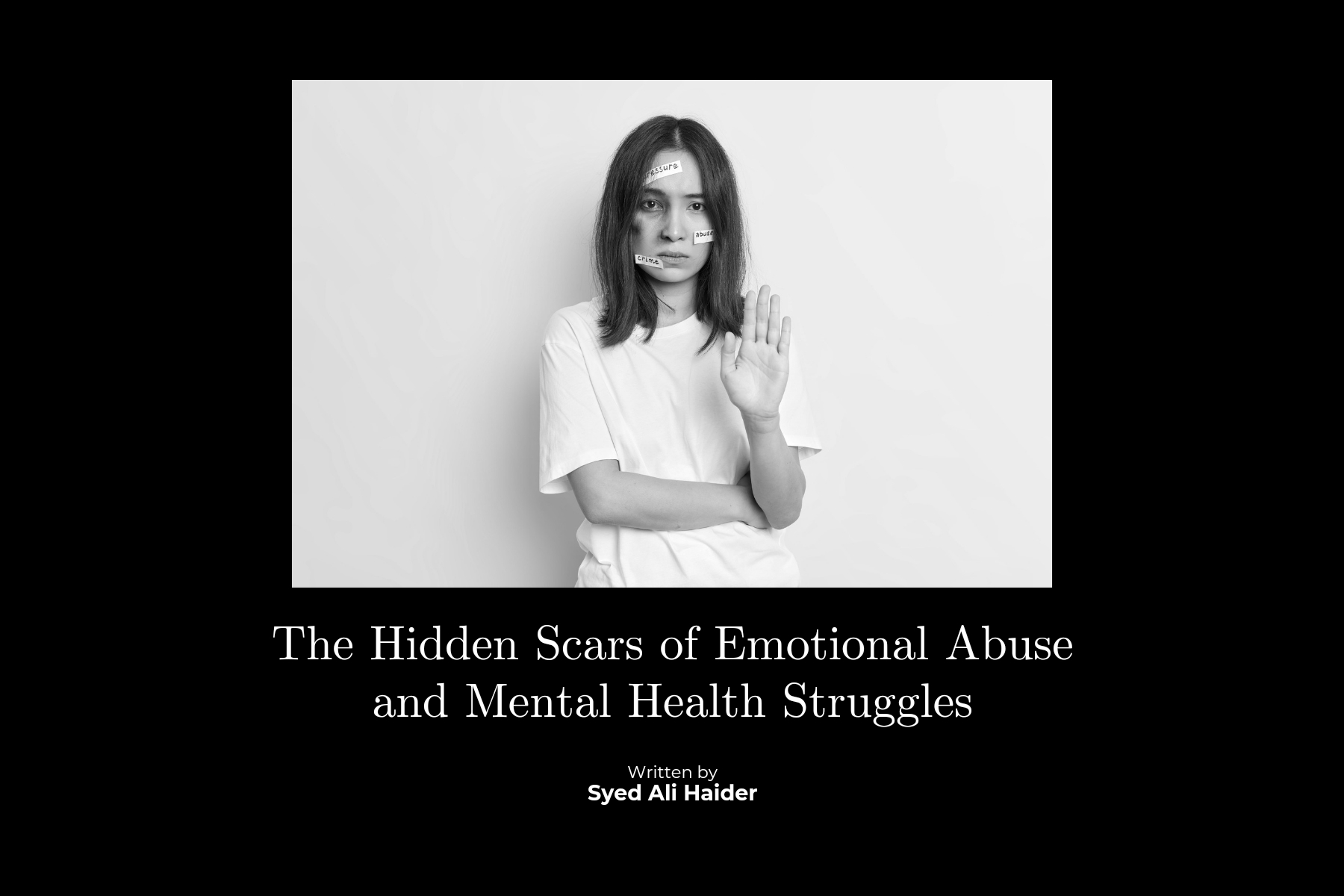The Hidden Scars of Emotional Abuse and Mental Health Struggles
The Strength of Those Battling Mental Health Issues
People often think that individuals dealing with Abuse or mental health struggles are weak, but this couldn’t be further from the truth. Those affected by emotional Abuse or psychological challenges are not weak—they are deeply empathetic, sensitive, and compassionate. These admirable traits, however, can make them more susceptible to emotional pain and mental health issues.
How Abuse and Hardships Impact Mental Health
Abuse, harsh life experiences, and the pain of betrayal or separation deeply affect mental health. These challenges take a toll on individuals who feel deeply, making it harder for them to navigate the complexities of life.
Fighting the Silent Battle Every Day
Despite these struggles, people with mental health issues show immense courage. Every morning, they wake up and fight an invisible battle within themselves. They work hard to appear “normal” in society, take on daily responsibilities like anyone else, and end their day preparing for the next round of battles.
A Shoutout to Survivors of Mental Health Struggles
This is a heartfelt shoutout to everyone dealing with mental health issues. Your resilience, your ability to fight through the pain, and your determination to move forward despite the odds deserve recognition and applause.
Empathy Over Judgment
Instead of labeling someone as weak, let’s recognize their strength and extend kindness. Abuse, judgment, and insensitivity can exacerbate mental health struggles. A little understanding can go a long way in supporting those who are fighting these unseen battles.
Be kind. Be empathetic. And above all, be a source of strength for those who need it the most.
The Deep Scars of Emotional Abuse: A Plea for Change
While physical abuse leaves visible wounds that heal over time, emotional abuse creates scars that run deep and are not easily mended. These invisible injuries can linger for years, affecting a person’s soul and mental well-being.
The Long-Lasting Effects of Emotional Abuse
Physical wounds can be treated with ointments and care, but emotional abuse leaves an imprint on the soul. It breaks a person from within, making it much harder to recover. The damage is not just surface-level—it touches the core of a person’s being, leaving them struggling with trust, self-esteem, and emotional stability.
Why Healing Often Depends on the Abuser
In many cases, those who have suffered emotional abuse find themselves needing healing from the very person who caused the pain. This can be a cruel irony, as they seek closure or comfort from the source of their suffering. For those who engage in abusive behavior, especially individuals with narcissistic tendencies, it’s important to understand the depth of the harm they cause.
A Message to Those Who Inflict Emotional Abuse
When you emotionally abuse someone, you don’t just hurt their feelings—you wound their soul. While your own needs might be temporarily satisfied, the person you hurt is left battling internal scars that could last a lifetime. If you’re in a relationship that isn’t working, it’s better to step back than to continue inflicting pain.
How to Begin the Healing Process
If you’ve caused emotional harm, it’s your responsibility to help repair the damage. Begin by creating positive memories, showing genuine care, and making efforts to bring happiness to the person you hurt. Replacing bad memories with good ones is one way to help them heal and move forward.
The Call for Kindness and Accountability
Emotional abuse is not just harmful; it’s soul-crushing. Whether intentional or not, the effects can be devastating. Be mindful of your actions and words, and if you realize you’ve hurt someone, take steps to make amends.
Let’s break the cycle of abuse by fostering empathy, kindness, and understanding in our relationships. Remember, healing begins when the abuser takes accountability for their actions.




